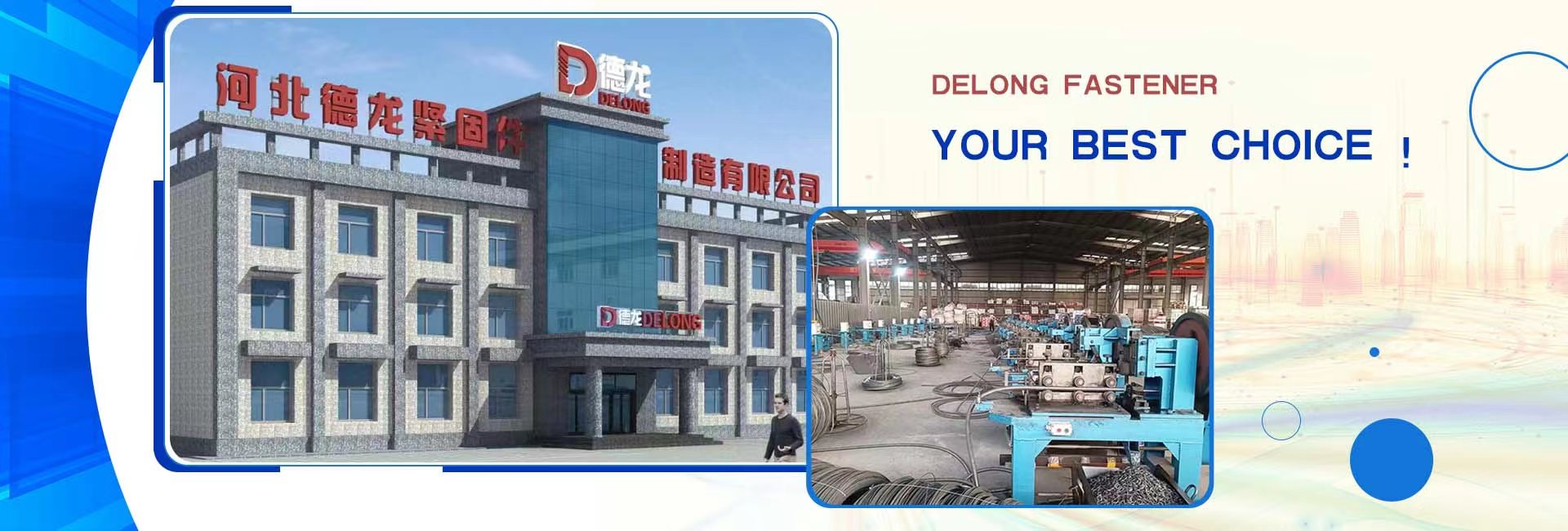spring washer vs lock washer
Spring Washer vs. Lock Washer Understanding the Differences and Applications
When it comes to securing bolts and nuts in various applications, the choice of washer can significantly influence the effectiveness of the assembly. Two commonly used types of washers in mechanical setups are spring washers and lock washers. Although both serve the primary purpose of preventing loosening of fasteners, they function differently and are suited for various applications. This article will explore the distinctions, advantages, and appropriate uses of spring washers and lock washers.
What is a Spring Washer?
A spring washer, often known as a Belleville washer, is designed to provide a cushioning effect while maintaining tension. Its unique conical shape allows it to compress under a load, absorbing vibrations and ensuring that the nut or bolt remains securely in place. When there is movement in the assembly due to vibration, thermal expansion, or other dynamic forces, the spring washer compensates by expanding or contracting, thereby preventing loosening of the fastener.
The primary benefit of spring washers is their ability to maintain preload across a wide range of operating conditions. They are particularly effective in applications where vibrations or thermal cycling are present, such as in automotive and aerospace industries, as well as in machinery and equipment subjected to frequent motion.
What is a Lock Washer?
Lock washers, on the other hand, are designed specifically to resist loosening due to vibration. They typically come in two types split and tooth lock washers. Split lock washers feature a split that creates a spring effect, applying pressure to the fastener. Tooth lock washers, which have serrations or teeth, dig into the surface of the fastener and the material beneath it, creating friction that helps to prevent slippage.
Lock washers are characterized by their sturdiness and straightforward construction, making them suitable for a range of applications. They are commonly used in construction, assembly tasks, and any scenario where components experience shear or lateral forces.
spring washer vs lock washer

Key Differences
One of the primary distinctions between spring washers and lock washers is their mechanism of action. Spring washers exert a constant clamping force when compressed, which aids in maintaining tension. Conversely, lock washers work by creating friction and mechanical interlocking, acting as a retainer rather than applying significant preload.
Another difference lies in the applications for which they are best suited. Spring washers are ideal for scenarios that require continuous load and resistance to dynamic motion, while lock washers are more effective in applications where components might experience shear forces or lateral movements.
Choosing the Right Washer
Selecting between a spring washer and a lock washer depends on the specific needs of the assembly. If the application involves continuous vibration and a need for maintained tension, spring washers are often the right choice. For standard applications where typical vibrations may occur but do not involve significant movement, lock washers provide adequate security.
In some cases, manufacturers may even use both types of washers in a single assembly to leverage the unique benefits of each. For instance, a spring washer could be used to maintain tension, while a lock washer provides additional resistance against loosening.
Conclusion
In conclusion, both spring washers and lock washers play essential roles in ensuring the integrity of mechanical assemblies. Understanding their differences will enable engineers and technicians to make informed decisions, enhancing the longevity and reliability of their products. Whether it's through the dynamic compensation of a spring washer or the mechanical grip of a lock washer, choosing the right solution is crucial in maintaining the effectiveness of any fastening system.
-
Top Choices for Plasterboard FixingNewsDec.26,2024
-
The Versatility of Specialty WashersNewsDec.26,2024
-
Secure Your ProjectsNewsDec.26,2024
-
Essential Screws for Chipboard Flooring ProjectsNewsDec.26,2024
-
Choosing the Right Drywall ScrewsNewsDec.26,2024
-
Black Phosphate Screws for Superior PerformanceNewsDec.26,2024
-
The Versatile Choice of Nylon Flat Washers for Your NeedsNewsDec.18,2024










